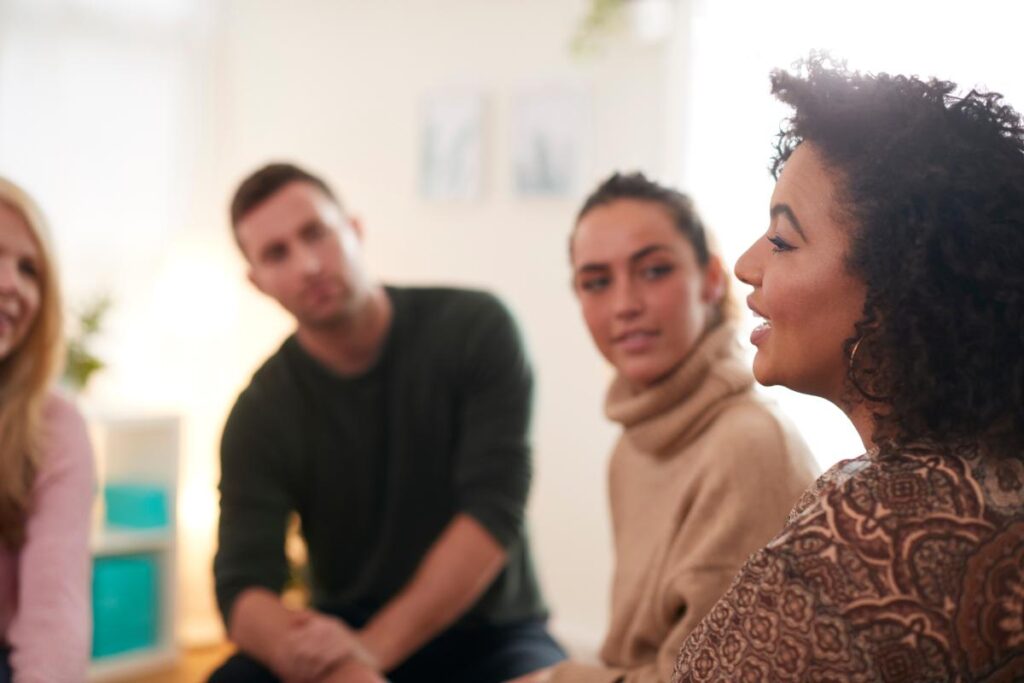It’s normal for people to want to help those they love living with addiction and substance use. Unfortunately, it can be easy to enable a loved one’s addiction. Family members often believe they are helping their addicted loved ones when, in reality, they are enabling drug or alcohol use and self-harming behaviors. Providing resources, structure, accountability, and supporting enrollment and completion of addiction therapy programs are some of the best ways to support a loved one and stop enabling addictive behaviors.
If you or someone you love is struggling with substance use, A Better State is here to help. Our holistic outpatient programs provide accessible addiction therapy for substance use, post-traumatic stress disorder (PTSD), anxiety, and depression. Our family therapy program can help you stop enabling addiction. Call us now at 781.412.1488 to learn more about what it means to be an enabler in addiction.
What Is an Addiction Enabler?
Understanding addiction and mental health is necessary to stop enabling loved ones. An enabler may unknowingly or knowingly encourage harmful patterns like substance use and self-harm. It’s important to understand that addiction is a disease with complex effects on mental and physical health. Addiction is common and often more intense for those living with diagnosed or undiagnosed mental health conditions.
Addiction occurs when the brain becomes dependent on dopamine and other chemicals from external substances. Whether someone is taking medication as prescribed or abusing drugs and alcohol, their brain can become dependent on these chemicals quickly. Symptoms of addiction include:
- Manic behavior
- Self-harm
- Changes in weight
- Changes in eating habits
- Confusion
- Paranoia
- Panic attacks
- Changes in social groups
- Lack of interest in favorite activities
- Self-isolation
- Increased fatigue
- Mood swings
- Erratic behavior
- Anger
- Anxiety
- Depression
- Changes in work or school performance
- Secretive behavior
- Acting intoxicated
- Increased drinking
- Trouble sleeping
Stimulants and depressants will both affect mood and behavior. If someone in your life shows signs of substance use, you may be enabling their addiction. Ignoring substance use, promoting drug use, or making unreasonable demands can all enable addiction and worsen mental health conditions.
Do I Enable Addiction?
Enabling a loved one with addiction is more than providing financial support or housing. The most common signs of enabling substance use and addiction include:
- Providing money to support their habit
- Providing housing
- Downplaying the severity of substance use
- Providing emotional support for unhealthy behavior
- Lying on their behalf
- Rationalizing their behavior
Ignoring substance use or other self-harming behavior is the highest level of enabling. Talking about addiction and helping someone find treatment can be the most difficult part of early recovery. Knowing your loved one is experiencing shame, guilt, and other negative emotions can help you understand their experience. Talking with your therapist and clinic staff can help you understand the best ways to support your loved one’s early recovery.
Help Your Loved One Begin Substance Use Treatment
Helping someone you love enter treatment is the best way to support recovery. Outpatient substance use treatment can be an excellent approach for families with safe, drug-free homes and those interested in consistent family therapy. This type of group therapy can help you stop enabling a loved one’s addiction and begin the road to healing together.
At A Better State, we believe in a different kind of addiction recovery. By uncovering and treating the root cause of addiction, our clinic can help your family thrive. Our PHP and IOP programs include:
- Anxiety treatment
- Depression treatment
- PTSD treatment
- Cocaine treatment
- Meth treatment
- Art therapy
- Opioid and opiate treatment
- Trauma therapy
- Benzo treatment
- Prescription drug treatment
With individual, group, and family therapy, A Better State can help you stop enabling a loved one while assisting them to recover from substance abuse and mental health conditions.
Learn More Addiction and Recovery at A Better State
Do you still need some clarification on what it means to be an enabler in addiction? Contact us today at 781.412.1488 to learn more about addiction treatment and how to help your loved one.


